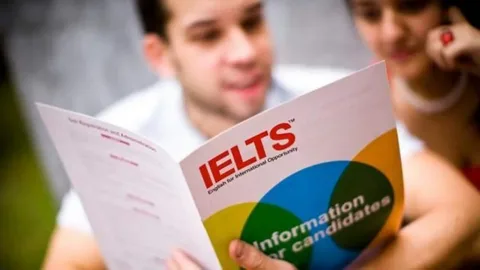Are you studying in the United Arab Emirates for the IELTS exam? This globally accepted English proficiency exam can lead to new career and educational options all across the world. Effective preparation is essential whether you’re taking the test for scholastic purposes, immigration, or job progress. Five thorough tactics are provided in this post to assist you maximize your ielts test practice and get the desired band score.
1.Create a Structured Study Schedule That Works for Your Lifestyle
Developing a personalized study plan consistently represents the main pathway to IELTS success. Begin your study time research by assessing the regular patterns of your daily commitments and your academic vitality levels. Students who wake up early should consider the morning hours while students who do better in the night should focus on evening classes. Plan specific periods to focus on each IELTS exam section including Reading, Writing and Speaking and Listening to avoid neglecting any subsection. The effectiveness of focused study is superior to prolonged study sessions due to its concentrated nature because focused sessions produce better results than stretched-out sessions. When making plans, take into account your UAE lifestyle; studying after evening prayers or before the day’s heat builds up could be effective. To stay motivated and avoid burnout, update your calendar every week depending on your success and make any necessary adjustments.
2.Practice with Authentic Test Materials for Genuine Experience
It is impossible to overestimate the importance of using authentic IELTS resources when preparing. The format, question kinds, and degree of difficulty of the examination that you will face on test day are all faithfully reflected in these materials. The most realistic practice experience is offered by the Cambridge IELTS series, official practice exams, and sample questions from IDP Education or the British Council. Simulate real test circumstances when working with these materials by keeping a strict timer, finishing all portions without interruption, and refraining from utilizing dictionaries or other tools. Through familiarity, this method lowers anxiety and increases testing endurance. This practical authenticity offers you a big edge in the competitive educational and professional environment of the United Arab Emirates.
3.Develop Active Listening Skills Beyond the Classroom
The practice of listening to various English-speaking situations beyond traditional educational resources builds your listening ability. English-language media should be included in your daily routine by listening to TED Talks when exercising or news shows when you cook or podcasts when you ride public transport. The multicultural environment of the United Arab Emirates makes this method highly applicable because it assists people in understanding different dialects and communication styles. As you listen, practice taking notes and distinguishing important information from supporting elements. Push yourself with more difficult material, progressively shifting from amusement to scholarly debates. After listening sessions, develop summary tasks to improve understanding and memory. To debate and analyze difficult audio portions, think about organizing listening groups with other test-takers.
4.Master Time Management Through Regular Timed Practice
One of the biggest obstacles for many IELTS applicants is accurately allocating their time, particularly when they are under test pressure. It takes intentional practice and plan preparation long in advance of exam day to establish good time management. To learn your natural working rate, start with untimed activities. Then, progressively add timing limits until you can work comfortably inside the parameters of the official test. Establish individualized goals for every segment, such as setting up a certain amount of time for reading sections of different lengths or scheduling preparation time for writing assignments. A straightforward spreadsheet that records completion times for several practice sessions may be used to measure your development. Determine which question kinds regularly take up the most time, then create targeted ways to deal with these issues.
5.Seek Constructive Feedback from Various Sources
The foundation of successful IELTS preparation is high-quality feedback, which offers perspectives that self-evaluation by itself cannot. To get a complete picture of how you performed on each exam component, vary the sources of your feedback. Consult with knowledgeable teachers who are familiar with the IELTS evaluation standards and who can point out particular areas where your speaking and writing replies need to be improved. Practice essays can be shared with other test-takers, who can provide peer viewpoints that occasionally draw attention to problems that teachers would miss. Note any hesitancies, grammatical mistakes, or difficulties with pronunciation as you record and listen attentively to your speaking practice. Seek reviewers who are knowledgeable with typical Arabic to English language transfer problems for the UAE environment, since these insights may be very pertinent to your preparation. Have an open mind when you receive comments, seeing criticism as a chance to grow rather than a source of despair.
Conclusion
Success in IELTS exams demands three main elements: dedication, thoughtful planning and continuous effort and choosing the best ielts training center in dubai. These five essential practice methods will help you develop necessary skills while building your self-assurance to succeed through study planning along with resource utilization and active listening practice coupled with time-management skills and welcome critical observations.



